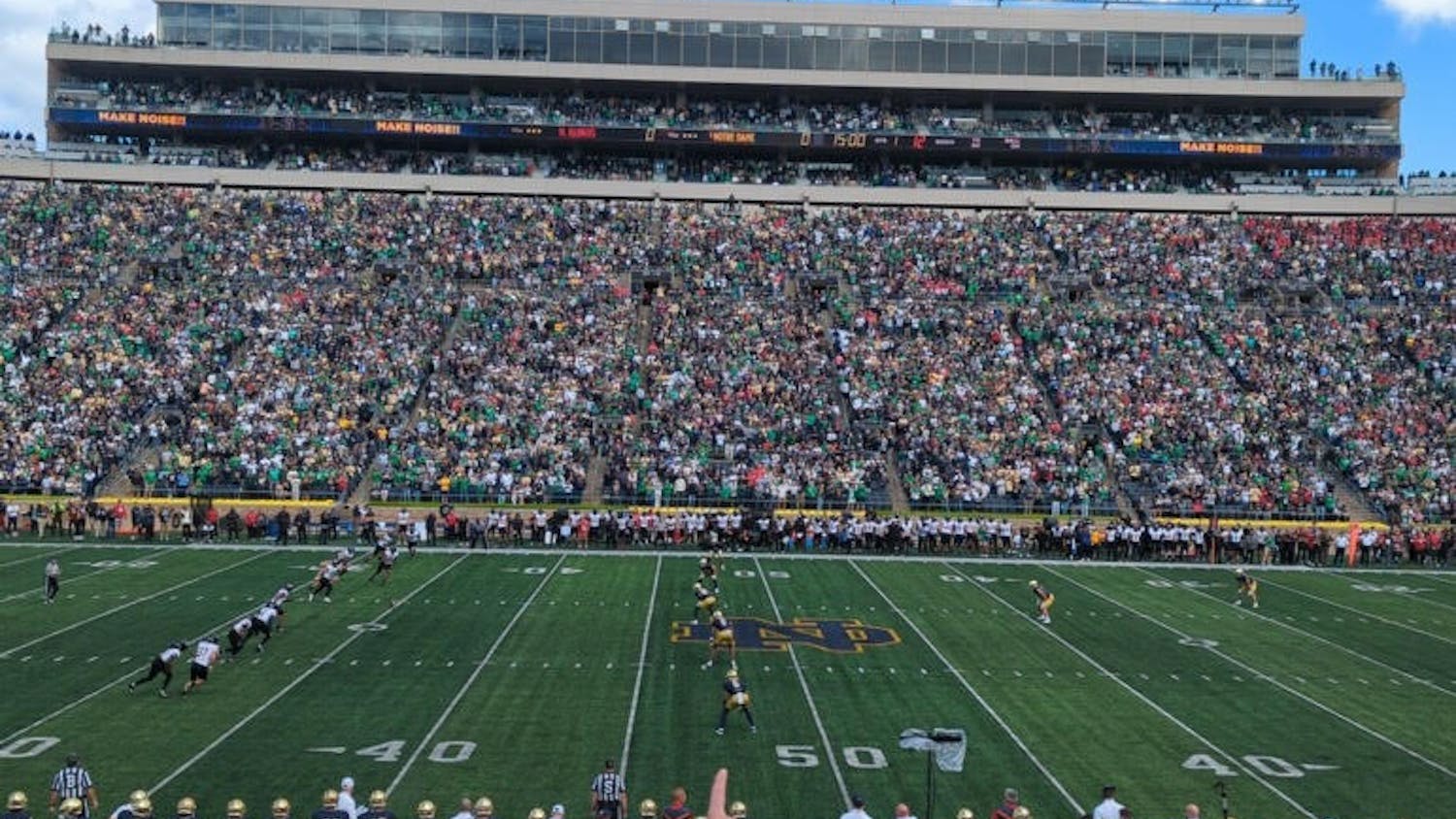Stop complaining about the Starship robots. Seriously.
First of all, they’re unimaginably polite. They yield the right of way to people and even squirrels, which makes them more considerate than 99% of electric scooter riders on campus. But secondly (and more importantly), their presence on campus is valuable because they serve as the harbingers of a new world. A world in which machines walk (or I guess for now roll) side by side with human beings.
Last month, a petition went around demanding the removal of Starship’s robots because they change what it means for us to “be here together” on campus. On the surface, this means that there’s now a tad bit more to be mindful of as you make your way around campus, but I think that our community’s reticence to accept the delivery robots runs even deeper than that. People didn’t resist the robots because of the minor inconvenience they impose on us. They resisted them because they were afraid of the truth that the robots make painfully obvious. Humanity is marching into a brave new world.
Those of us who have read Aldous Huxley’s “Brave New World” or George Orwell’s “1984” will understandably shudder at my choice of words. I chose them intentionally because I understand the dark side of the rapid pace of technological advancement recently. I understand why so many people are concerned about it. These new solutions bring with them new problems. Advancements in machine learning mean that doctors can spend less time on menial administrative tasks and diagnose conditions more accurately. But these advancements also mean that an AI can now impersonate the voices of your friends and family,or put 4 million truckers out of work.
This isn’t new, though. Throughout all of history, technological advancement has always meant a dichotomy: new ways to thrive, and new ways to suffer. In 1886, Carl Benz patented model No. 1 of his Benz motor car, and a few decades later, cars were in widespread use across Europe and America. Today, motor vehicle accidents are the number one way that teenagers lose their lives and also the number one source of carbon emissions globally. But we take the good with the bad because we all understand that our modern society would be unimaginable without motorized vehicles.
So, the Starship robots should stay, and it’s actually for the very same reason that people petitioned for them to be removed. They do change what it means to “be here together.” So did the Internet. So did the BlackBerry. So did Uber. What it means to “be here together” has always been changing and evolving. Every new morning when we get out of our beds, we are stepping into a new world with new possibilities.
We’re stepping into a world in which we don’t have to brave a frigid South Bend morning to get a warm cup of coffee. A world where a “chatbot” can help us with our programming homework. One hundred years ago, this was only conceivable in works of scientific fiction. One thousand years ago, it wasn’t conceivable at all. As a community, we’re privileged to live on the cutting edge of innovation, and I think that we should become more comfortable with that reality. The sooner we do that, the sooner we can step up to become the drivers of that innovation and the safeguards against its negative consequences.
So, the next time you cross paths with a Starship robot, I think that you should feel inspired that mankind continues to use technology to approach and go far beyond its potential. A lot of times we take for granted just how unfathomable the world we live in truly is. Thousands of years ago we navigated by way of lights in the sky. Today, we use the lights in our pockets. Technological advancement has raised the global standard of living and enabled upward mobility, the likes of which has never existed before in our world. Of course, we must also remember human nature. People will undoubtedly exploit new technology if it means they can dominate or manipulate other people. I would argue however that this is a defect of man, not machine. Regardless, we should be wary of the dark sides of our continual innovation and work to mitigate them as much as possible.
But mostly, we should be grateful that we get to live in a time in human history where a robot can deliver our morning doses of Au Bon Pain right to the doors of our residence halls.
Oluwatoni (Toni) is a freshman majoring in Business Analytics at the University of Notre Dame. He can be reached at oakintol@nd.edu.
A brave new world
The views expressed in this column are those of the author and not necessarily those of The Observer.









